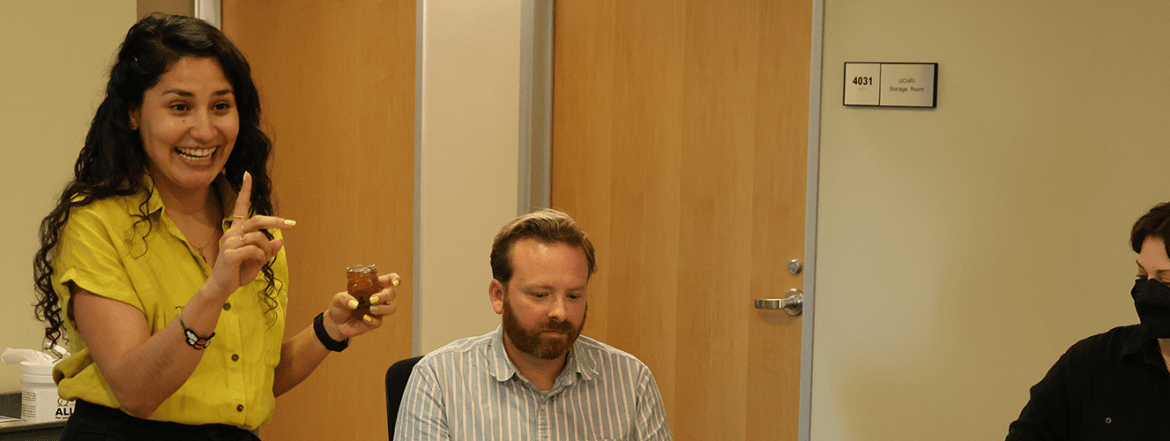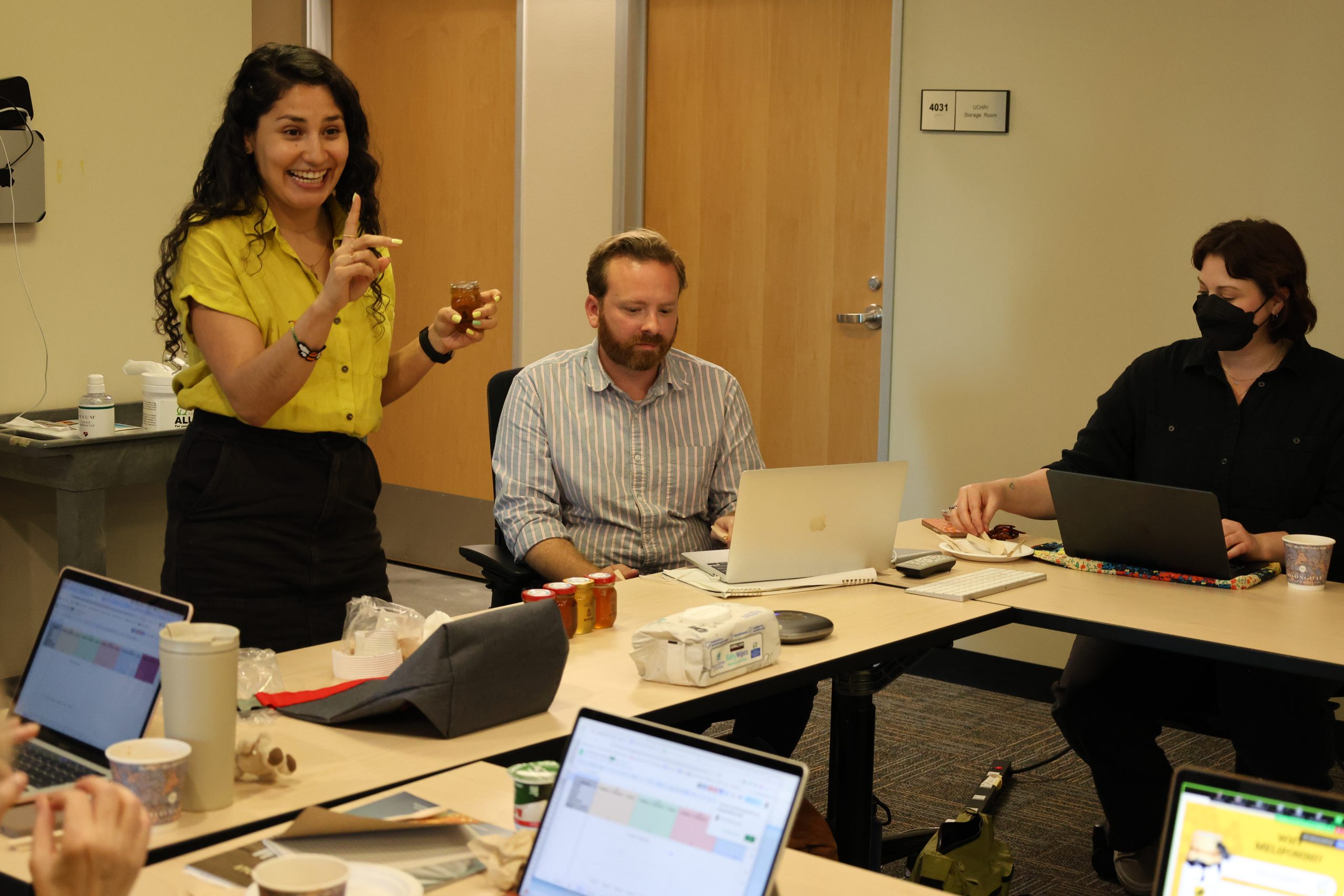Cross-Pollinating the Humanities and Environmental Science
By Munyao Kilolo, UCHRI Graduate Student Researcher, and Marianna Davison, WUICAN Postdoctoral Scholar
“What does it taste like? What is the viscosity? How does it smell?”
Alejandra Cano, an agroecologist and Native American Studies PhD candidate at UC Davis, asked participants in UCHRI’s Climate Action Summer Institute to sample honey from different species of bee. While most participants preferred the familiar sweetness of the Apis Melifera, the European honeybee, flavors of the Meliponini species of stingless bee from South America defied all conventions in its range from tart to astringent.
In her research, Cano works with Indigenous groups in Colombia that have lived and worked with Meliponini for generations. Through her demo, cross-pollination became a metaphor for a memorable week of study and inquiry.
A joint project between UCHRI and WUICAN (Wildland-Urban Interface Climate Action Network), the Climate Action Summer Institute brought together eight graduate students from seven UC campuses for a week-long residential experience at UC Irvine in August 2024.
Students in Film and Media Studies, English, Political Science, Native American Studies, Visual Arts, and Anthropology shared their embodied approaches to climate research and community engagement in a rapidly changing world.
In addition to Alejandra’s honey demonstration, other sensory skillshares included a smell walk with Tinghao Zhou (UC Santa Barbara), natural wine tasting with Elizabeth McQueen (UC Los Angeles), and knot-tying with Joe Riley (UC San Diego). Innovative approaches to media included genre analysis (Mikhaila Redovian, UC Davis), prayer as portal (Elane Westfaul, UC Irvine), and critical collages (Clara Bergamini, UC Santa Cruz).
Skillshares by graduate students were supplemented by workshops with visiting scholars. Novelist Aimee Bender (University of Southern California) used flash fiction to train attention to scales of life at the edges of consciousness. “The key to writing,” she emphasized, “is to delve deeper into the thoughts below the thoughts.”
Jade Sasser (UC Riverside) guided the summer fellows through the building blocks of an opinion piece, from the need for a lede to the power of a final call for action.
“You have to be open and creative about how you get your message across,” Sasser explained. “In public-facing writing, you put yourself on the page and figure out what relationship you want to create with the audience. Try to remove boundaries and engage readers who may not have the same training as you.”
Sarah McCullough (UC Davis) led a workshop on value-based research that drew from her experience working with students and researchers as the Associate Director of the Feminist Research Institute at UC Davis. One participant shared, “Sarah’s values-based listening exercise was a really helpful tool.”
At the start of the summer, fellows were paired with local land conservancies and environmental justice organizations, including Irvine Ranch Conservancy, OC Environmental Justice, and UCI Nature, with a goal of co-developing materials that communicate the impact of community climate research.
Grecia Perez, an Anthropology student at UC Riverside, was paired with Keila Villegas (UC Santa Barbara 2020), Water Justice Director for Orange County Environmental Justice. Grecia and Keila are now co-designing an ArcGIS StoryMap that will guide visitors on a “Toxic Tour” of neighborhoods whose water quality is impacted by historical and ongoing contamination.
From an educational zine on planting native California Buckwheat and Telegraph Weed to bioremediate polluted soil, to a revitalization of UCI Nature’s San Joaquin Marsh website, fellows’ collaborative projects are making a meaningful impact on how WUICAN-led climate communications can embrace the creative cross-pollination of methods to translate regionally specific and urgently relevant climate science for the broader public.
The Wildland-Urban Interface Climate Action Network (WUICAN, pronounced “we can”) is a consortium of community-based organizations, California Native American Tribes, land managers and universities in Southern California working together to address the climate crisis.



